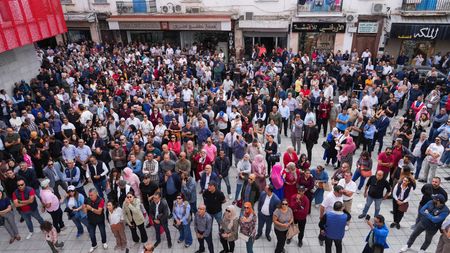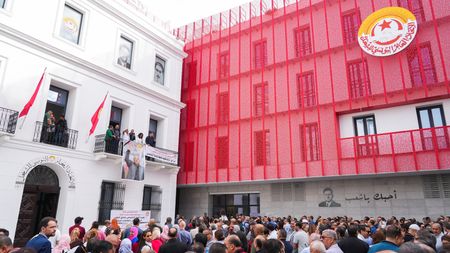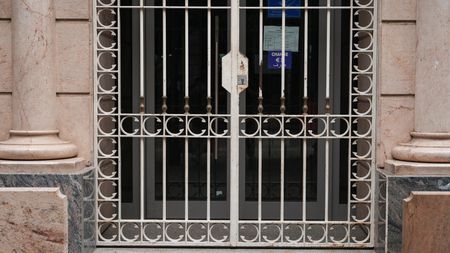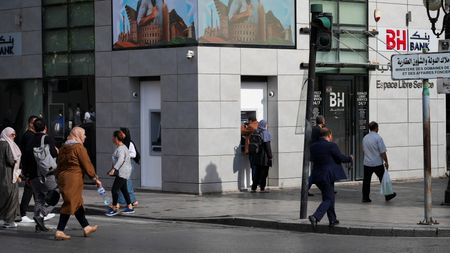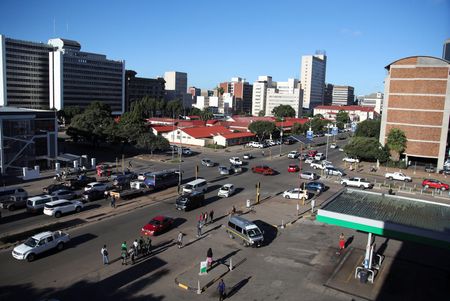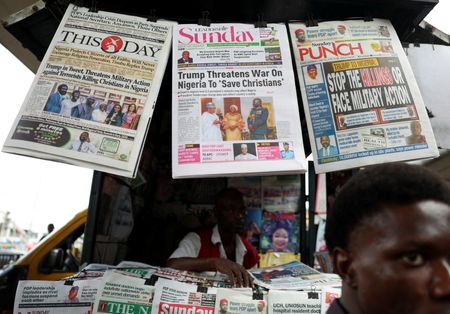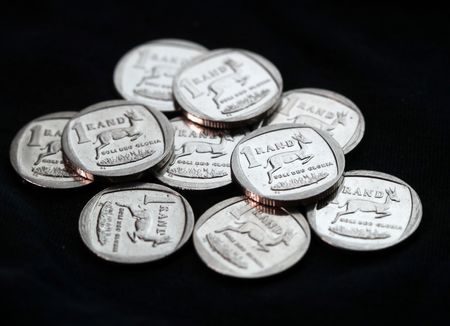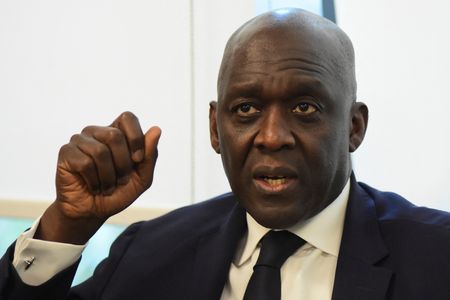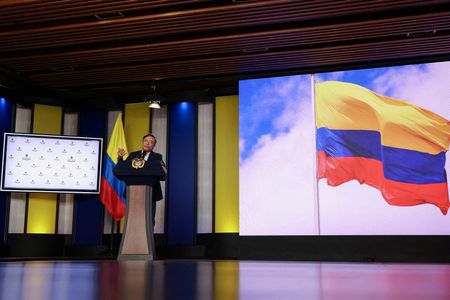(Adds dropped word staff in headline)
By Tarek Amara
TUNIS (Reuters) -Tunisian bank workers began a two-day strike on Monday to demand pay rises, halting all financial transactions as the country struggles with an economic crisis.
Lines formed at cash points as the walkout started, but customers said many of the machines were broken.
“We are struggling with everything. Many medicines are missing. Some goods are in short supply … The cost of living is extremely high, and now we are left paralysed without cash,” one woman, Imen Ben Slama, said.
The powerful UGTT union called the strike after talks over pay and working conditions broke down with the banking council, which represents all public and private banks.
The union says rising living costs have eroded employees’ purchasing power and is demanding “urgent adjustments” to salaries. The government was not immediately available for comment.
The size of the strike highlighted UGTT’s enduring influence in a country where President Kais Saied has centralised power since he began ruling by decree in 2021.
Saied’s government suspended three NGOs last week and many critics have been jailed, in a widening crackdown on civil society and the opposition.
Saied says he is fighting traitors, corrupt figures and mercenaries. He accuses civil society groups of receiving foreign funding with the aim of interfering in Tunisian affairs.
UGTT head Noureddine Taboubi told hundreds of bank workers gathered near his headquarters on Monday that “union rights, as well as public and individual freedoms, were under attack”.
“Trade unionists are fighting not only for their rights but also for their dignity,” he added.
Tunisia is grappling with a severe economic crisis, with a shortage of foreign funding and investment, weak economic growth, public debt exceeding 80% of GDP, shortages of some essential goods and poor public services.
“Bank employees are suffering like all Tunisians with rising cost of living,” bank worker Abdel Aziz told Reuters at the rally.
(Reporting by Tarek Amara; Editing by Andrew Heavens)

